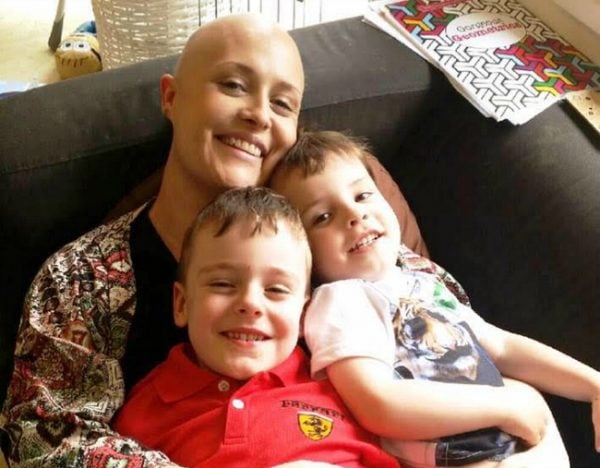I panicked when I first felt the lump, but I convinced myself that, at 31, I was too young for it to be anything sinister. Hours after my diagnosis, I was numb. I couldn’t eat, cry, sleep or even talk. As the days went on I felt a huge range of emotions. Fear was a big one. And sadness. There were so many questions. Why me? How was I going to tell my kids? My mind was consumed with thoughts about what my future would bring and not seeing my babies grow up.
To me the ‘c’ word meant a death sentence and something I didn’t want to think about.
But the reality was my breast cancer was very aggressive. I chose to have a bilateral mastectomy with immediate reconstruction. Surgery was tough. I had to spend excruciating hours in nuclear medicine, having radioactive dye injected into my breasts so they could find my lymph nodes and test whether the cancer had spread.
Following my surgery, I had a high risk of infection and was isolated from everyone for five weeks. Not always being able to see my kids and cuddle them every day was heart-breaking. Then, on top of everything, I contracted neutropenia while I was going through chemotherapy; a condition that reduces the number of white blood cells in your body, which makes it harder for your immune system to fight off infections. Everyone had to wear masks around me. It was very confronting, and I felt so alone.
Kids’ entertainer Tina Harris opens up about surviving breast cancer, and how it affected her family time. (Post continues below.)
It sounds silly, but I sometimes felt that my emotions would be a burden on others. When I felt like being sad, I would stop myself because everyone thought I was so strong and I didn’t want to let them down. So I would make jokes at my own expense and then cry in the bathroom where no one could see me. I still do this at times.

